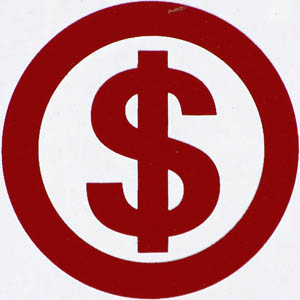When it comes to health care fraud, medical facilities and hospitals are the top two offenders. That’s according to a new Government Accountability Office report released this week.

Illustration by Leo Reynolds via Flickr
According to the report, 10,187 individuals and entities were investigated in 2010 for defrauding Medicare, Medicaid, and the Children’s Health Insurance Program (CHIP). Medical facilities (including medical centers, clinics, and medical practices) and medical equipment suppliers represented the bulk of criminal investigations. Hospitals were the most frequent subjects of civil cases.
The GAO analyzed data from government sources, including the Department of Health and Human Services’ Office of the Inspector General, the Department of Justice (which included the FBI) and 10 state Medicaid Fraud Control Units. Forty percent of those state investigations for fraud in Medicaid and CHIP in 2010 were home health care providers and health care practitioners.
While most of the 7,848 criminal cases were not prosecuted, among those that were, most were found guilty or pled guilty or no contest. The GAO notes that “Medical facilities and medical equipment suppliers represented close to 40 percent of those convicted.”
Some offenders were barred from participating in federal health care programs. For example, close to 2,200 subjects, more than half of whom were in nursing, were banned in 2010. The reasons for exclusion included conviction of health care fraud or patient abuse and negligence.
Investigations of pharmacies have really boomed, according to the GAO, from 99 cases in 2005 to 321 in 2010.
The release of the GAO report came less than a week after Attorney General Eric Holder and Department of Health and Human Services Secretary Kathleen Sebelius announced that a Medicare Fraud Strike Force operation resulted in one of the largest fraud busts in history. Over 91 people, including many health care professionals, across seven cities were charged in connection with close to $430 million in false billings.
Senate Finance Committee Chairman Max Baucus, D-Mont., and a long-time proponent of cracking down on health care criminals, described the bust as a “victory in the fight against Medicare fraud and it proves yet again that health reform is saving money and improving the health care system.”
Provisions of the health law include increasing the funding for the Medicare Fraud Strike Force and new ways to prevent health care fraud by screening health care providers before they are enrolled in the Medicare program.
Detecting and stopping health care fraud, however, is no easy feat. “For a long time we were not in a position to keep up with the really sophisticated criminals,” said Peter Budetti, who oversees anti-fraud efforts at the Centers for Medicare and Medicaid Services, said in August. “They’re not only smart, they’re extremely well-funded. And this is their full time job.”






